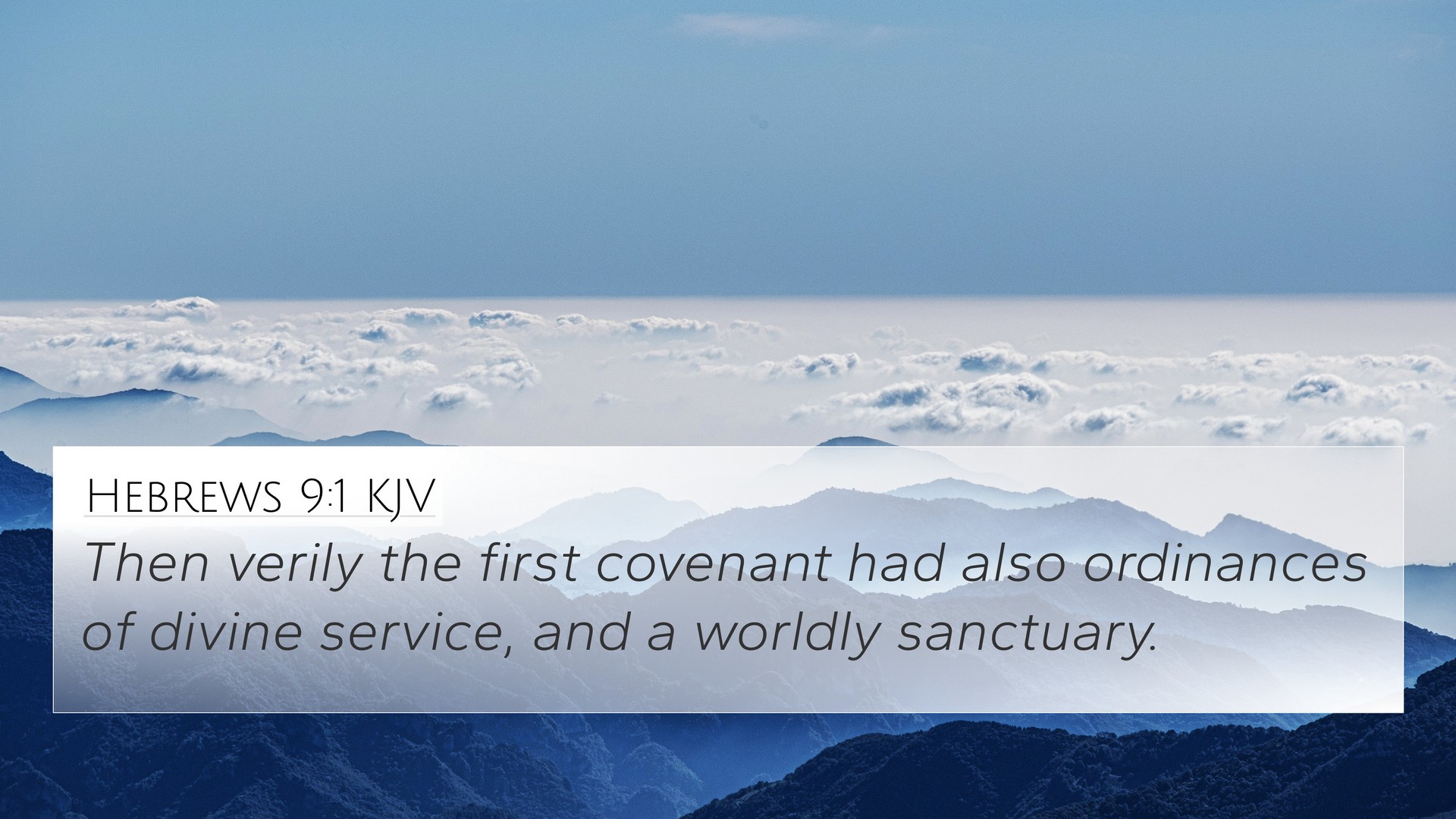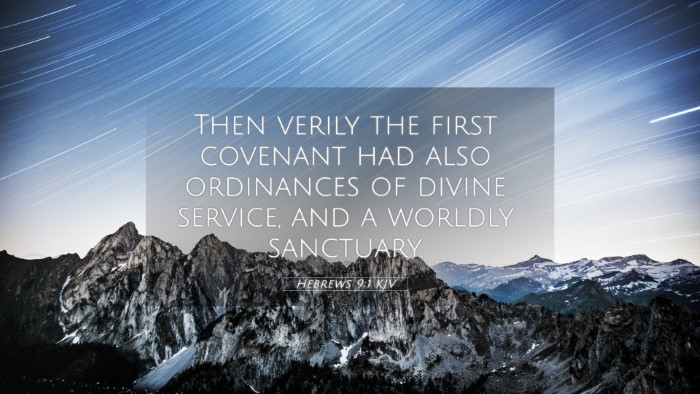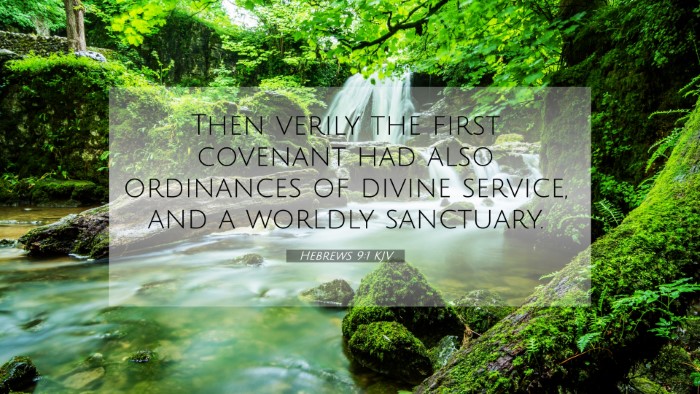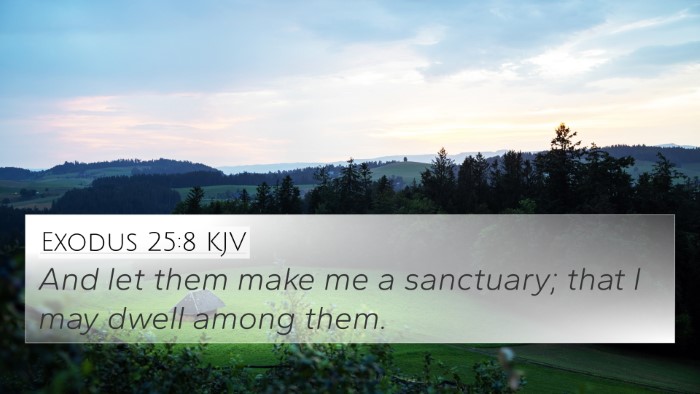This section features a detailed cross-reference designed to enrich your understanding of the Scriptures.
Below, you will find carefully selected verses that echo the themes and teachings related to Hebrews 9:1 KJV. Click on any image to explore detailed analyses of related Bible verses and uncover deeper theological insights.
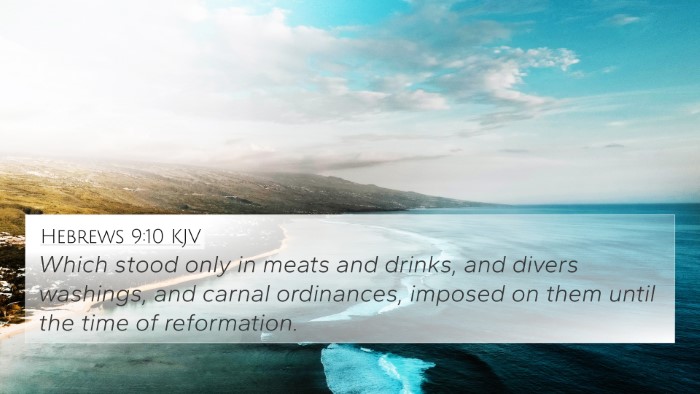 Hebrews 9:10 (KJV) »
Hebrews 9:10 (KJV) »
Which stood only in meats and drinks, and divers washings, and carnal ordinances, imposed on them until the time of reformation.
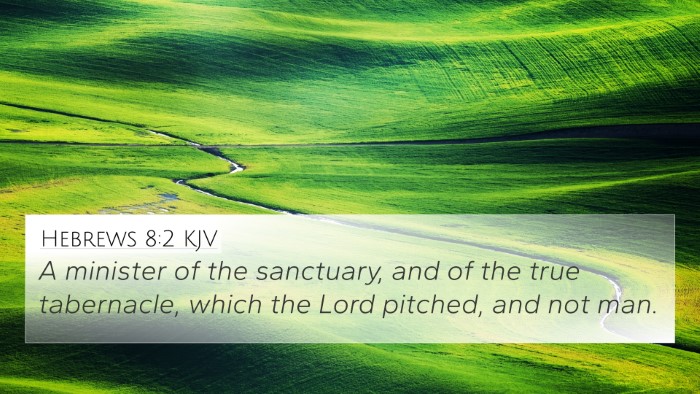 Hebrews 8:2 (KJV) »
Hebrews 8:2 (KJV) »
A minister of the sanctuary, and of the true tabernacle, which the Lord pitched, and not man.
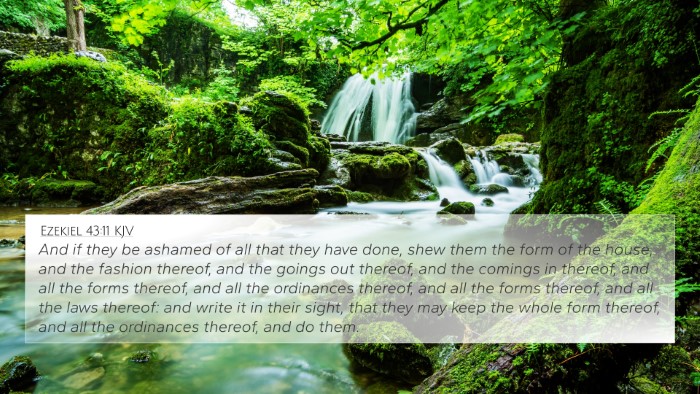 Ezekiel 43:11 (KJV) »
Ezekiel 43:11 (KJV) »
And if they be ashamed of all that they have done, shew them the form of the house, and the fashion thereof, and the goings out thereof, and the comings in thereof, and all the forms thereof, and all the ordinances thereof, and all the forms thereof, and all the laws thereof: and write it in their sight, that they may keep the whole form thereof, and all the ordinances thereof, and do them.
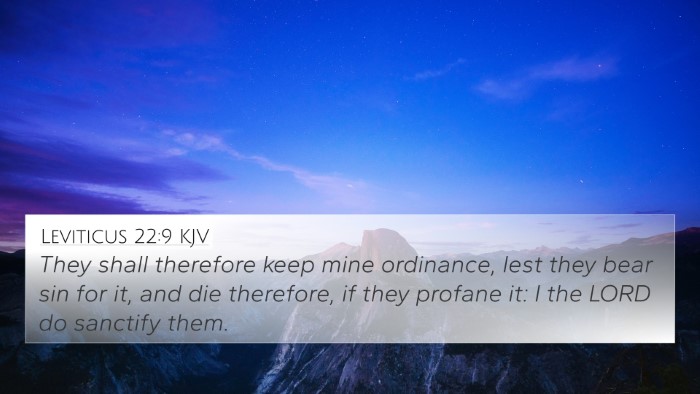 Leviticus 22:9 (KJV) »
Leviticus 22:9 (KJV) »
They shall therefore keep mine ordinance, lest they bear sin for it, and die therefore, if they profane it: I the LORD do sanctify them.
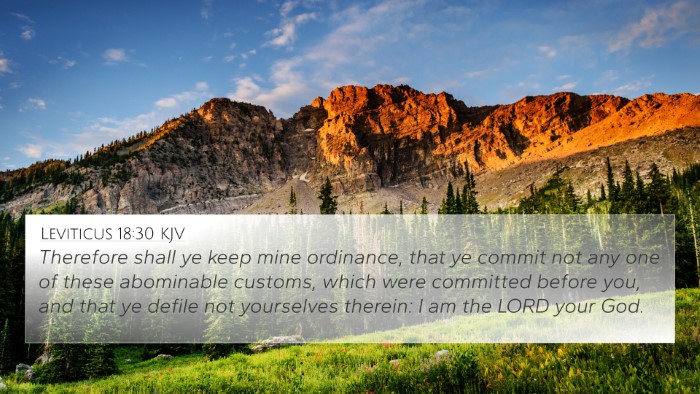 Leviticus 18:30 (KJV) »
Leviticus 18:30 (KJV) »
Therefore shall ye keep mine ordinance, that ye commit not any one of these abominable customs, which were committed before you, and that ye defile not yourselves therein: I am the LORD your God.
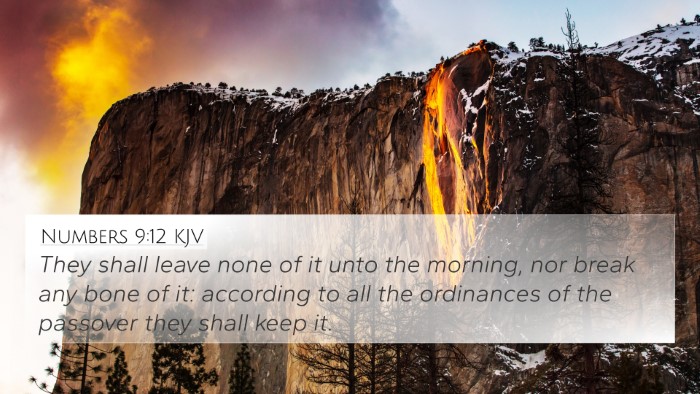 Numbers 9:12 (KJV) »
Numbers 9:12 (KJV) »
They shall leave none of it unto the morning, nor break any bone of it: according to all the ordinances of the passover they shall keep it.
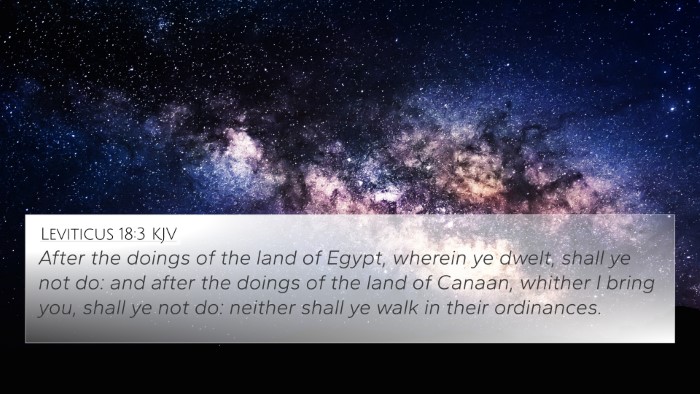 Leviticus 18:3 (KJV) »
Leviticus 18:3 (KJV) »
After the doings of the land of Egypt, wherein ye dwelt, shall ye not do: and after the doings of the land of Canaan, whither I bring you, shall ye not do: neither shall ye walk in their ordinances.
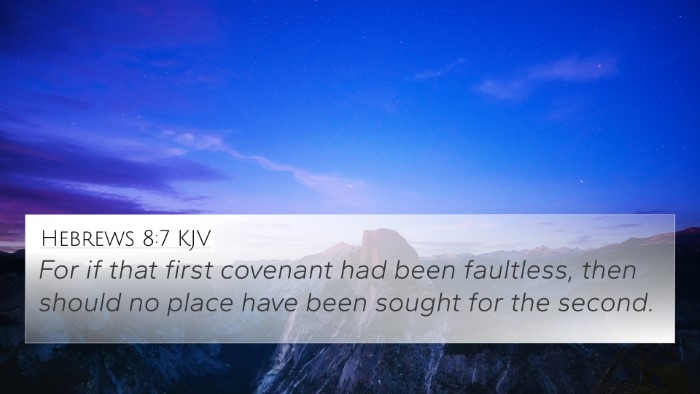 Hebrews 8:7 (KJV) »
Hebrews 8:7 (KJV) »
For if that first covenant had been faultless, then should no place have been sought for the second.
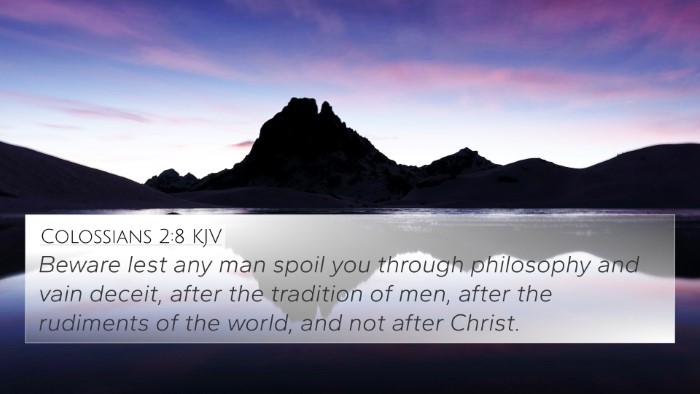 Colossians 2:8 (KJV) »
Colossians 2:8 (KJV) »
Beware lest any man spoil you through philosophy and vain deceit, after the tradition of men, after the rudiments of the world, and not after Christ.
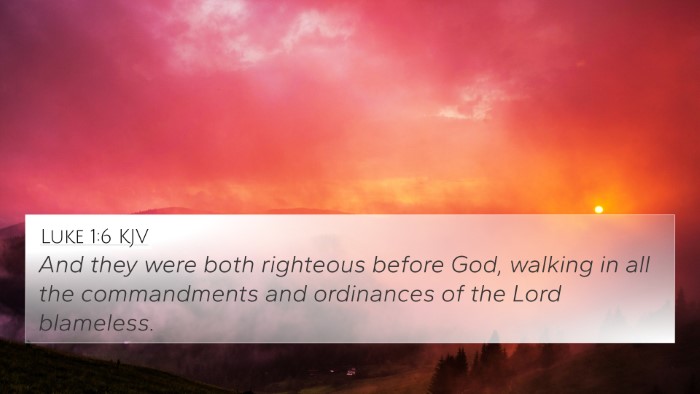 Luke 1:6 (KJV) »
Luke 1:6 (KJV) »
And they were both righteous before God, walking in all the commandments and ordinances of the Lord blameless.
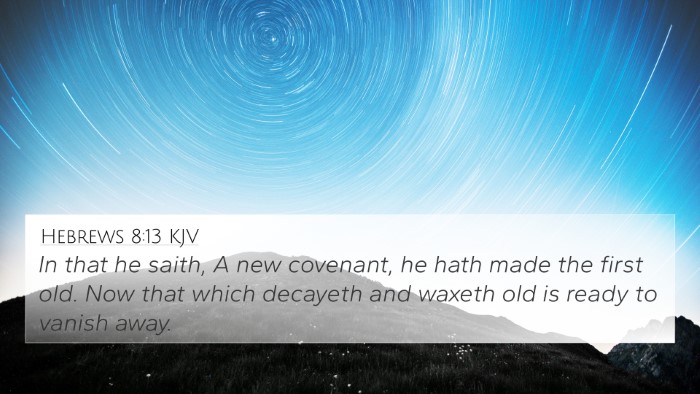 Hebrews 8:13 (KJV) »
Hebrews 8:13 (KJV) »
In that he saith, A new covenant, he hath made the first old. Now that which decayeth and waxeth old is ready to vanish away.
